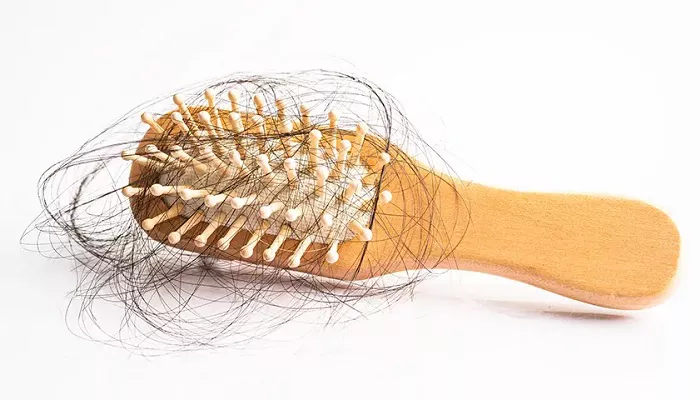Hair loss is a common issue, particularly as we age, yet its impact on mental health is often overlooked. As more people, including high-profile individuals like Academy Award-nominated actress Cynthia Erivo, embrace baldness, society’s perception of hair loss is shifting. However, for many, losing hair is a source of significant emotional distress. Here’s a look at how hair loss affects mental well-being, particularly for older adults, and strategies for coping.
A Growing Trend, Yet a Difficult Reality
In a 2024 interview with Elle UK, Cynthia Erivo shared her experience of being questioned about her baldness, responding, “I like my bald head.” Erivo’s embrace of baldness highlights a growing movement of individuals confidently displaying their hairless looks as symbols of empowerment. But, for others, the idea of hair loss can feel overwhelming and even distressing.
Amanda Krisher, Associate Director of Behavioral Health at the National Council on Aging (NCOA), notes that pop culture’s mixed messages about beauty standards can exacerbate feelings of inadequacy. While some embrace baldness, others feel burdened by societal expectations of perfect, full hair. Krisher stresses that it’s important to recognize that feelings of anxiety, depression, and low self-esteem are normal responses to hair loss, and resources are available to help individuals cope.
Psychological Impact of Hair Loss in Older Adults
As we age, visible changes such as wrinkles and thinning hair become more common. In fact, by age 50, nearly half of men and a quarter of women will experience some form of hereditary hair loss. For many, hair loss serves as an unavoidable reminder of aging, making it a particularly difficult issue to face.
“Our hair is an integral part of our identity,” Krisher explains. “It’s not just about appearance; people recognize us by it. When it starts to fall out, it can feel like a profound loss.”
This emotional toll can manifest in various ways, and many individuals experience:
Anxiety and Depression: The uncertainty surrounding hair loss can trigger anxiety. For some, the fear of worsening hair loss leads to anticipatory anxiety, which, if left unchecked, can evolve into panic attacks, generalized anxiety, or depression.
Social Withdrawal: Feelings of self-consciousness about hair loss can lead to avoiding social situations. Although understandable, this isolation can worsen feelings of loneliness, anxiety, and depression, preventing individuals from receiving much-needed emotional support.
Grief Over Aging: Hair loss is often a stark reminder of aging. As people see physical changes that don’t align with their internal self-image, they may experience grief related to the loss of youth and vitality. Societal values that prioritize youth further contribute to feelings of irrelevance.
Body Dysmorphia: In some cases, hair loss can lead to body dysmorphia, a condition where an individual becomes preoccupied with a perceived flaw that others don’t notice. This disorder is linked to increased anxiety, depression, and social withdrawal.
Strategies for Coping with Hair Loss
While the psychological effects of hair loss can be challenging, there are several effective strategies to help navigate these changes:
Maintain Social Connections: Social bonds are vital to emotional well-being. Sharing your feelings with supportive friends and family members can offer comfort and prevent isolation.
Join a Support Group: Connecting with others who are experiencing similar challenges can help reduce feelings of loneliness. Look for in-person or virtual support groups focused on hair loss.
Seek Professional Mental Health Care: Cognitive Behavioral Therapy (CBT) can be particularly helpful for addressing negative thought patterns related to hair loss. Seeking therapy can provide tools to manage emotions and improve mental well-being.
Follow a Healthy Diet: Nutrition plays a key role in mental health. A balanced diet can support positive thinking and may even slow hair loss in some cases. Nutrients such as iron, B12, and protein are essential for hair health.
Explore Over-the-Counter Products: Various products, such as scalp oils, thickening shampoos, and dietary supplements, are available to help manage hair thinning. However, always consult a healthcare provider before starting any new treatment to avoid potential interactions with existing medications.
Consider Wigs and Hairpieces: For those looking for a cosmetic solution, wigs, hairpieces, and hair extensions can help improve appearance and boost confidence. These options, available in a range of prices, can provide a temporary or long-term solution to hair loss.
Medical Treatments for Hair Loss
In some cases, hair loss may be reversible with medical intervention. Consulting a healthcare professional, such as a dermatologist, is the best course of action for identifying the underlying cause of hair loss and determining suitable treatments. Options may include:
Finasteride: A prescription medication for men with androgenetic alopecia.
Minoxidil: An over-the-counter topical treatment for hair regrowth.
Nutritional Supplements: Vitamins and minerals that address hair loss related to dietary deficiencies.
Laser Therapy: Low-level laser therapy has shown potential for treating pattern baldness and increasing hair density.
Conclusion
Coping with hair loss is both a physical and psychological process. While the journey may be difficult, there are numerous strategies to support emotional well-being and reclaim self-confidence. Whether through social support, mental health care, or exploring medical treatments, older adults facing hair loss can take proactive steps to manage their mental health and improve their quality of life. As Krisher puts it, taking a holistic approach to hair loss allows individuals to face the challenges ahead with renewed confidence and self-esteem.
Related topics:
- Honey: The Natural Elixir for Spring Hair Damage
- Ariana Grande Unveils First Major Hair Transformation in Years
- IVE’s Jang Won-young Named Dyson Korea Hair Device Ambassador


